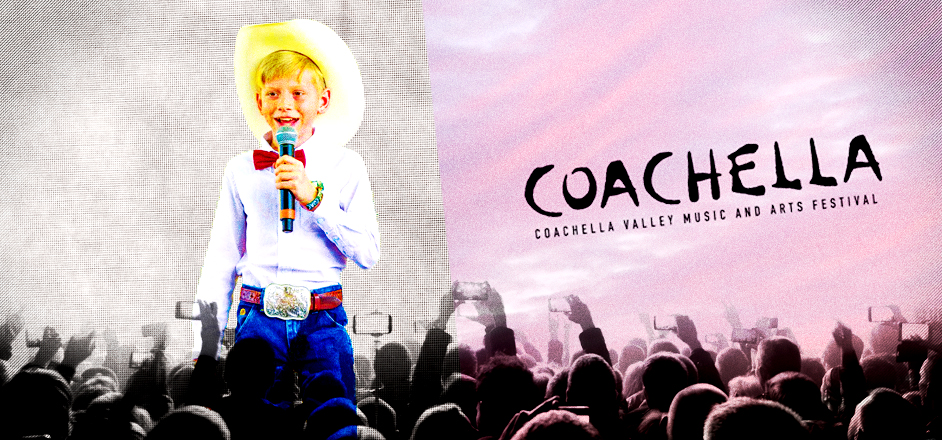Last month you probably saw (unless you’re one of the lucky few left still hiding under rocks) that an 11-year-old Walmart yodeling kid was one of the biggest artists Coachella has had on stage in years.
No kidding, he was the second-most tweeted about celebrity of the event surpassed only by Beyoncé — which as we all know employs Russian bots to pad her popularity. (Okay, we’re kind of kidding there.)
The little dude’s success is mind-churning in a few ways. One, he’s super young and immensely talented; thank second-God Hank Williams for the virality of this meme. And two, how is it that people don’t understand they’re the ones in control now?
Small blips of power in numbers increasingly pepper music with artists and trends major gatekeepers are completely blindsided by. In the month before Mason Ramsey’s success — the yodeling kid’s real name — Fleetwood Mac’s song “Dream” shot into the top 20 on Billboard’s rock music chart despite it being over 40 years old. All because of a few-hundred-thousand retweets.
The song took off after a meme titled “Me, an intellectual,” went berserker, pushing streams of the former No. 1 Billboard song from June 1977 up 24 percent to 1.9 million the last week of March, Billboard reported.

Another example is when, in May of 2004, Spotify was forced to pull Vulfpeck’s album titled Sleepify because it claimed to “violate the company’s terms of content.” It was an entire album of silence the band encouraged fans to play before bed so they could up their stream count. Vulfpeck bilked $20,000 from Spotify before having to pull it down.
But hell, this fan manipulation stuff has been going on for years. In 1999, a chain letter (social media before social media) was sent out to AOL accounts encouraging people to call into MTV’s Total Request Live and get an old New Kids on the Block song into its top 10. It worked, and host Carson Daly was visibly confused when he had to announce it.
The three examples, and many others like them, might be cheeky and for laughs on the surface, but show important alterations to an archaic framework major players in music have been operating with for years. It’s no longer, Hey here’s a pop star and shitty songs, it’s all you get; and instead, Lets sign every Xanax rapper on SoundCloud with a few million streams and see what happens — tossing noodles to the wall.
Still not perfect, but it’s change.
Viral campaigns also prove that you as a consumer have the ability to dismantle the current regime. If you don’t like something, don’t listen. If you do, support the artist — no matter how many likes or hearts he or she has to their name. Tell people about them. Tweet their video. Facebook a link to their new album. They could be the next yodeling kid from the sticks.
Show industry execs who they should be listening to. You.



Leave a Reply